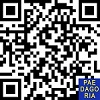ANALYSIS OF STUDENTS RESPONSES TO ONLINE LEARNING USING UNIFIED THEORY OF ACCEPTANCE AND USE OF TECHNOLOGY MODEL
Abstract
Abstrak: Penelitian ini bertujuan untuk menganalisis tanggapan 239 siswa dan 847 mahasiswa terhadap proses pelaksanaan pembelajaran daring selama COVID-19 menggunakan Unified Theory of Acceptance and Use of Technology (UTAUT) model. Penelitian ini merupakan penelitian kuantitatif dengan menganalisis hasil angket yang telah disebar secara online, dimana angket sebanyak 17 indikator/pertanyaan dengan skala Likert 4 option. Analisis data yang digunakan adalah uji regresi. Hasil analisa data menunjukkan bahwa tanggapan siswa dan mahasiswa dari segi kinerja, usaha, dan faktor sosial terhadap minat belajar secara daring sebesar 44,9% yang berarti sedang, sedangkan dari segi kondisi fasilitas dan minat terhadap upaya menerapkan pembelajaran daring sebesar 37% yang berarti rendah. Oleh sebab itu, melalui pembelajaran daring seharusnya guru ataupun dosen lebih efektif menggunakan e-learning yang memuat materi lebih komplek sebagai sarana dan sumber belajar yang optimal bagi siswa ataupun mahasiswa.
Abstract: This study aims to analyze students' responses to the process of implementing online learning during COVID-19 using the Unified Theory of Acceptance and Use of Technology (UTAUT) model. This research is a quantitative research by analyzing the results of polls that have been distributed online, where the questionnaire as many as 17 indicators / questions with a scale Likert 4 options. The data analysis used is a regression test. The results of the data analysis showed that the response of students and students in terms of performance, effort, and social factors to online learning interest by 44.9% which means moderate, while in terms of facilities and interest in efforts to implement online learning by 37% which means low. Therefore, through online learning, teachers or lecturers should be more effective in using e-learning that contains more complex materials as optimal means and learning resources for students.Keywords
Full Text:
DOWNLOAD [PDF]References
Adedoyin, O. B., & Soykan, E. (2020). Covid-19 pandemic and online learning: the challenges and opportunities. Interactive Learning Environments, 0(0), 1–13. https://doi.org/10.1080/10494820.2020.1813180
Alawamleh, M., Al-Twait, L. M., & Al-Saht, G. R. (2020). The effect of online learning on communication between instructors and students during Covid-19 pandemic. Asian Education and Development Studies. https://doi.org/10.1108/AEDS-06-2020-0131
Anggraeni, A. W., Angelina, D., & Dwijayanti, M. (2020). Tanggapan Mahasiswa Terhadap Pembelajaran Daring Di Masa Karantina Covid-19. HUMANIORA DAN ERA DISRUPSI, 1(1), 627–638.
Armstrong, D. A. (2011). Students’ perceptions of online learning and instructional tools: A qualitative study of undergraduate students use of online tools. Turkish Online Journal of Educational Technology, 10(3), 222–226.
Chen, E., Kaczmarek, K., & Ohyama, H. (2020). Student perceptions of distance learning strategies during COVID-19. Journal of Dental Education, July, 1–2. https://doi.org/10.1002/jdd.12339
Dong, C., Cao, S., & Li, H. (2020). Young children’s online learning during COVID-19 pandemic: Chinese parents' beliefs and attitudes. Children and Youth Services Review, 118(August). https://doi.org/10.1016/j.childyouth.2020.105440
Galusha, Jill, M. (1998). Barriers to learning in distance education.
Handayani, T., Khasanah, H. N., & Yoshinta, R. (2020). Pendampingan belajar di rumah bagi siswa sekolah dasar terdampak covid-19. ABDIPRAJA (Jurnal Pengabdian Kepada Masyarakat), 1(1), 107. https://doi.org/10.31002/abdipraja.v1i1.3209
Hannay, M. (2006). Perceptions of Distance Learning : a Comparison of Online and Traditional Learning. 2(1), 1–11.
Harrison, T. (2020). How distance education students perceive the impact of teaching videos on their learning. Open Learning, 35(3), 260–276. https://doi.org/10.1080/02680513.2019.1702518
Hung, M. L., Chou, C., Chen, C. H., & Own, Z. Y. (2010). Learner readiness for online learning: Scale development and student perceptions. Computers and Education, 55(3), 1080–1090. https://doi.org/10.1016/j.compedu.2010.05.004
Lassoued, Z., Alhendawi, M., & Bashitialshaaer, R. (2020). An exploratory study of the obstacles for achieving quality in distance learning during the covid-19 pandemic. Education Sciences, 10(9), 1–13. https://doi.org/10.3390/educsci10090232
Liu, X., Liu, S., Lee, S.-H., & Magjuka, R. J. (2010). International Forum of Educational Technology & Society Cultural Differences in Online Learning: International Student Perceptions. Source: Journal of Educational Technology & Society, 13(3), 177–188.
Mandalina, V., Syaharuddin, Firdaus, M., Abdillah, Pramita, D., & Negara, H. R. P. (2019). Math mobile learning app as an interactive multimedia learning mathematics. International Journal of Scientific and Technology Research, 8(10), 2548–2550.
Marelli, S., Castelnuovo, A., Somma, A., Castronovo, V., Mombelli, S., Bottoni, D., Leitner, C., Fossati, A., & Ferini-Strambi, L. (2020). Impact of COVID-19 lockdown on sleep quality in university students and administration staff. Journal of Neurology, 0123456789. https://doi.org/10.1007/s00415-020-10056-6
Martin, F., & Bolliger, D. U. (2018). Engagement matters: Student perceptions on the importance of engagement strategies in the online learning environment. Online Learning Journal, 22(1), 205–222. https://doi.org/10.24059/olj.v22i1.1092
Nabila Hilmy Zhafira SM., M., Yenny Ertika SE., M. S., & Chairiyaton SE., M. S. (2020). Persepsi Mahasiswa Terhadap Perkuliahan Daring Sebagai Sarana Pembelajaran Selama Masa Karantina Covid-19. Jurnal Bisnis Dan Kajian Strategi Manajemen, 4(1), 37–45.
Negara, H. R. P., Syaharuddin, S., Kurniawati, K. R. A., Mandailina, V., & Santosa, F. H. (2019). Meningkatkan Minat Belajar Siswa Melalui Pemanfaatan Media Belajar Berbasis Android Menggunakan Mit App Inventor. SELAPARANG Jurnal Pengabdian Masyarakat Berkemajuan, 2(2), 42. https://doi.org/10.31764/jpmb.v2i2.887
Nilayani, S. A. P. (2020). Survei Kepuasan Siswa Terhadap Proses Belajar Daring Selama Pandemi Covid-19. Jurnal Ilmu Pendidikan, 3(3), 453–462.
Putri, R. S., Purwanto, A., Pramono, R., Asbari, M., Wijayanti, L. M., & Hyun, C. C. (2020). Impact of the COVID-19 pandemic on online home learning: An explorative study of primary schools in Indonesia. International Journal of Advanced Science and Technology, 29(5), 4809–4818.
Rusdiana, E., & Nugroho, A. (2017). Respon pada Pembelajaran Daring bagi Mahasiswa Mata Kuliah Pengantar Hukum Indonesia. Integralistik, 19(2), 148–152.
Sahu, P. (2020). Closure of Universities Due to Coronavirus Disease 2019 (COVID-19): Impact on Education and Mental Health of Students and Academic Staff. Cureus, 2019(4), 4–9. https://doi.org/10.7759/cureus.7541
Sari, G. A. (2020). Dampak Sistem Kegiatan Belajar Mengajar (KBM) Daring Akibat Covid-19 Terhadap Siswa. Jurnal IKA PGSD (Ikatan Alumni PGSD) UNARS, 8(2), 462. https://doi.org/10.36841/pgsdunars.v8i2.848
Villela, lucia maria aversa. (2013). Analisis Deskriptif Hasil Belajar Pembelajaran Tatap Muka Dan Pembelajaran Daring Menurut Gaya Belajar Mahasiswa. Journal of Chemical Information and Modeling, 53(9), 1689–1699.
Wiwin, H. (2016). Penggunaan E-Learning sebagai Media Pembelajaran. Jurnal Pendidikan Ekonomi, 10(1), 1–18.
Yunitasari, R., & Hanifah, U. (2020). Pengaruh Pembelajaran Daring terhadap Minat Belajar Siswa pada Masa COVID 19. Edukatif: Jurnal Ilmu Pendidikan, 2(3), 236–240.
DOI: https://doi.org/10.31764/paedagoria.v12i1.3912
Refbacks
- There are currently no refbacks.
Copyright (c) 2021 Zaenab Jamaludin, Syaharuddin Syaharuddin, Ahmad Ahmad, Nur Indah Sari, Vera Mandailina, Dewi Pramita

This work is licensed under a Creative Commons Attribution-ShareAlike 4.0 International License.
Paedagoria : Jurnal Kajian, Penelitian dan Pengembangan Kependidikan
Fakultas Keguruan & Ilmu Pendidikan | Universitas Muhammadiyah Mataram.
_______________________________________________
 | Paedagoria : Jurnal Kajian, Penelitian dan Pengembangan Kependidikan |
______________________________________________
CURRENT INDEXING:
EDITORIAL OFFICE:


















